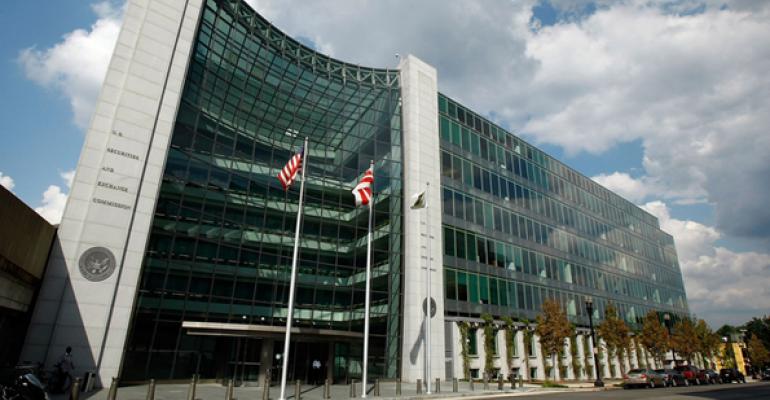The Securities and Exchange Commission settled charges with a cadre of advisory firms that fell short of the Marketing Rule’s compliance mandates.
Five firms, including GeaSphere, Bradesco Global Advisors, Credicorp Capital Advisors, InSight Securities and Monex Asset Management, will collectively pay $200,000 to settle charges they violated the ad rule.
It’s the second set of cases stemming from the SEC’s “ongoing targeted sweep” checking registrants’ compliance with the rule. The commission settled its first ad rule-related action in August 2023, with nine firms settling charges for $850,000 one month later.
GeaSphere will pay $100,000, the largest fine of the group by a significant margin because it allegedly violated certain aspects of the rule the other firms did not. The four other firms began alleviating the problems before being approached by SEC investigators.
“Today’s actions show that we will continue to employ targeted initiatives to ensure that investment advisers fully comply with their obligations under the rule,” Corey Schuster, Co-Chief of the Enforcement Division’s Asset Management Unit, said. “They also serve as a reminder of the benefits to firms that take corrective steps before being contacted by Commission staff.”
According to the settlement letters, the AUM for the five firms ranged from GeaSphere’s $86 million to $516 million at Credicorp Capital Advisors.
According to the commission’s settlement with the firm, Rhode Island-based GeaSphere posted ads on its website and social media containing numerous false statements. The firm allegedly created a promo video for its website claiming that GeaSphere clients would not be charged twice for both mutual fund management fees and advisory fees. (In reality, clients paid both.) The firm also claimed money invested with GeaSphere was “never commingled” with clients the way it is with mutual funds. However, clients’ money was regularly commingled with other fund investors, including GeaSphere clients.
According to the SEC, GeaSphere also posted factsheets on its website portraying portfolio performance that “was consistently inaccurate,” both overstating and understating performance. Some factsheets also showed gross performance without presenting net performance, violating the ad rule.
GeaSphere’s ads also included hypothetical performance, using backtesting data from a time that strategy was not being used. According to the SEC, the firm couldn’t back up its performance shown in its marketing and didn’t enter written agreements when compensating third parties for endorsements.
The four other firms paid fines ranging from $20,000 to $30,000, with the commission focusing on how firms apply hypothetical performance in ads.
In the InSight settlement, the commission said that the firm “disseminated hypothetical performance in advertisements to a mass audience rather than presenting hypothetical performance relevant to the likely financial situation and investment objectives of the intended audience.”
However, the four firms had tried to improve their compliance procedures even before the commission knocked on their door, resulting in lower penalties.
The SEC passed the amendments to its marketing and ad rule in late 2020, with it going into effect in May 2021 and a compliance date in December of the following year. The rule mandated how and when advisors could use testimonials and endorsements, and the kinds of metrics firms can use in marketing materials. An SEC risk alert from last June detailed the lapses they were finding.
The emphasis on hypothetical performance was particularly notable, as it was outlawed entirely before the new rule, according to Thayne Gould, director of Vigilant Compliance.
But using it comes with strings, including the fact that it can only be used with specific audiences. According to Gould, if a firm posts hypothetical performance metrics on its website, they’re not being selective about the audience.
“The SEC has said certain conditions have to be present for you to be able to do this. What are you presenting? Could it be misleading? What’s the audience you’re using it with?” he said. “That’s a lot of infrastructure to support.”
In contrast with the Whatsapp and off-channel communications fines from the past several years, which started with the massive firms, the commission is starting with smaller registrants with ad rule violations. Gould speculated that the commission would go after larger firms for such violations if they could.
“But because it’s an infrastructure issue, the larger firms are vetting this more carefully before they use it,” he said. “It stands to reason that maybe these smaller firms didn’t vet the implications.”

